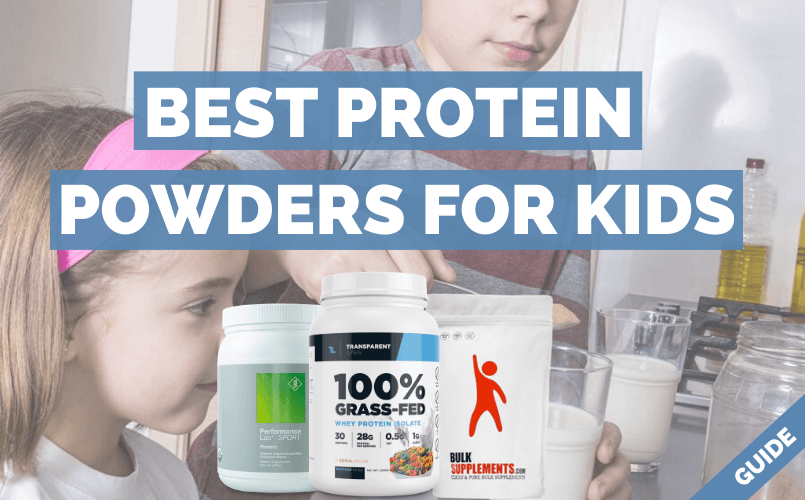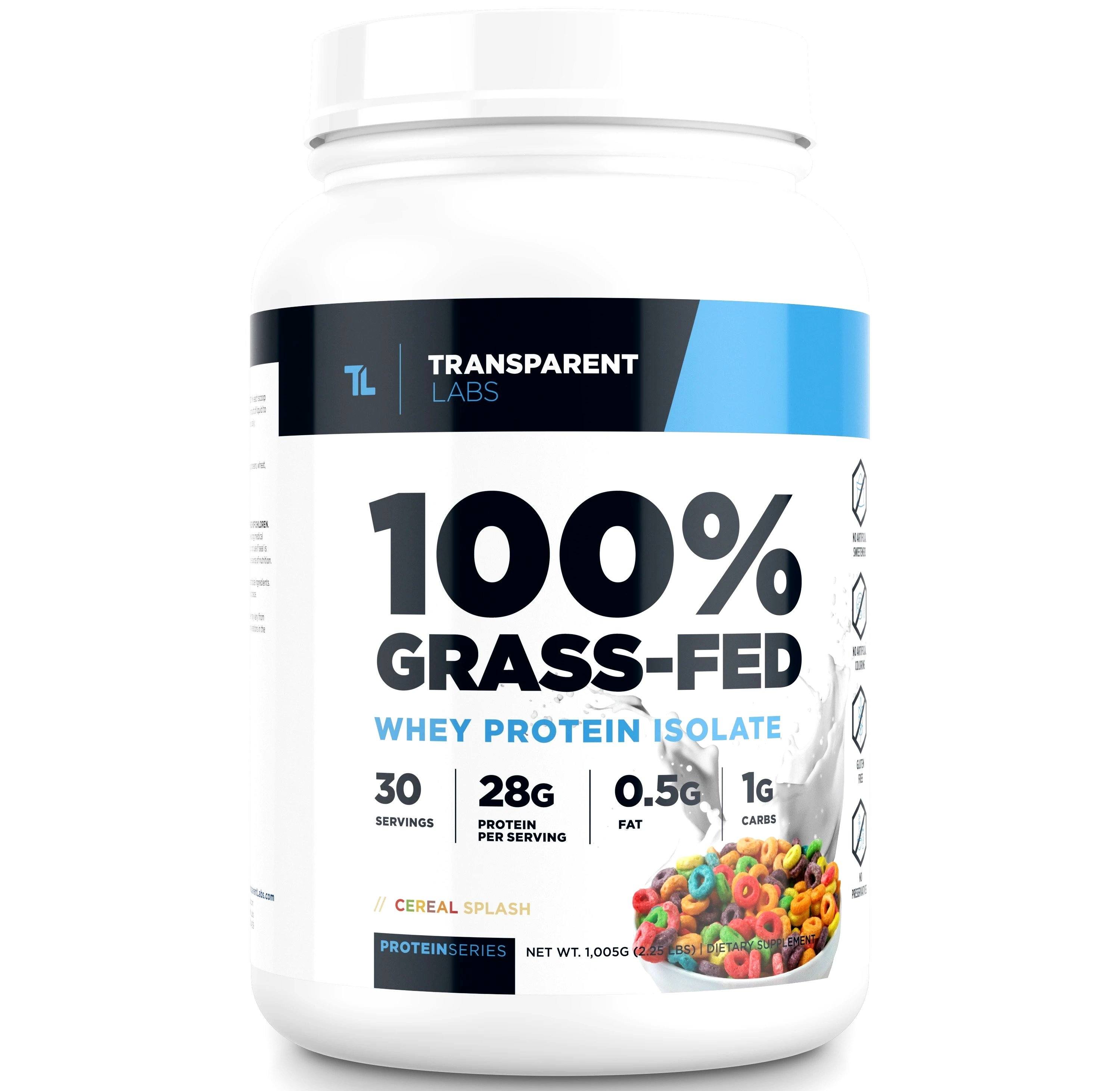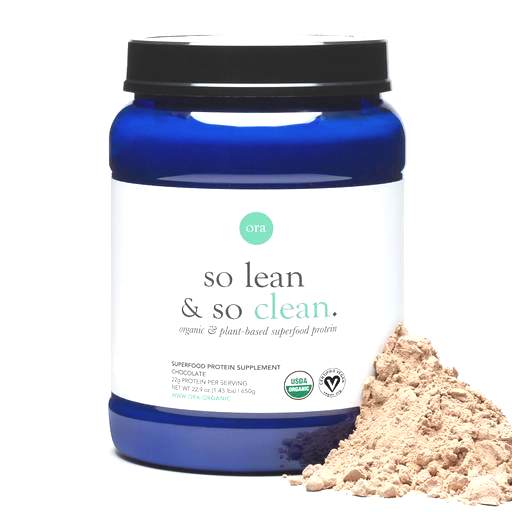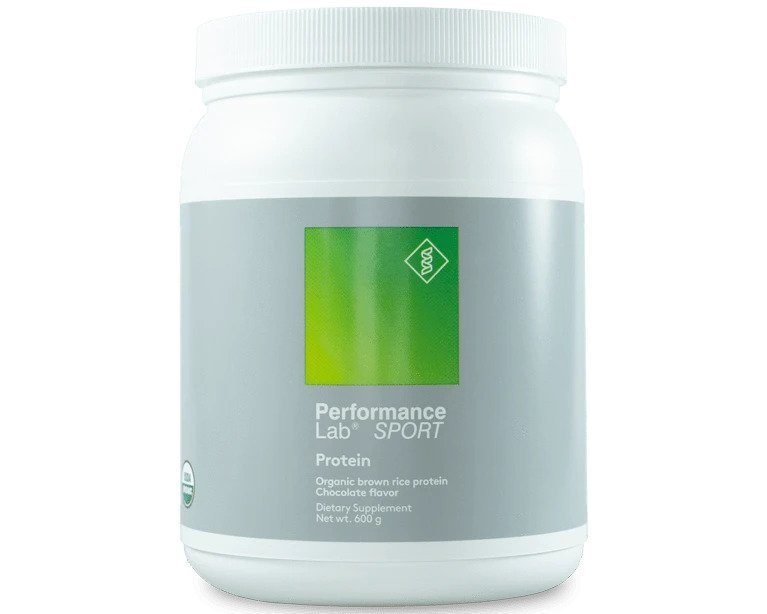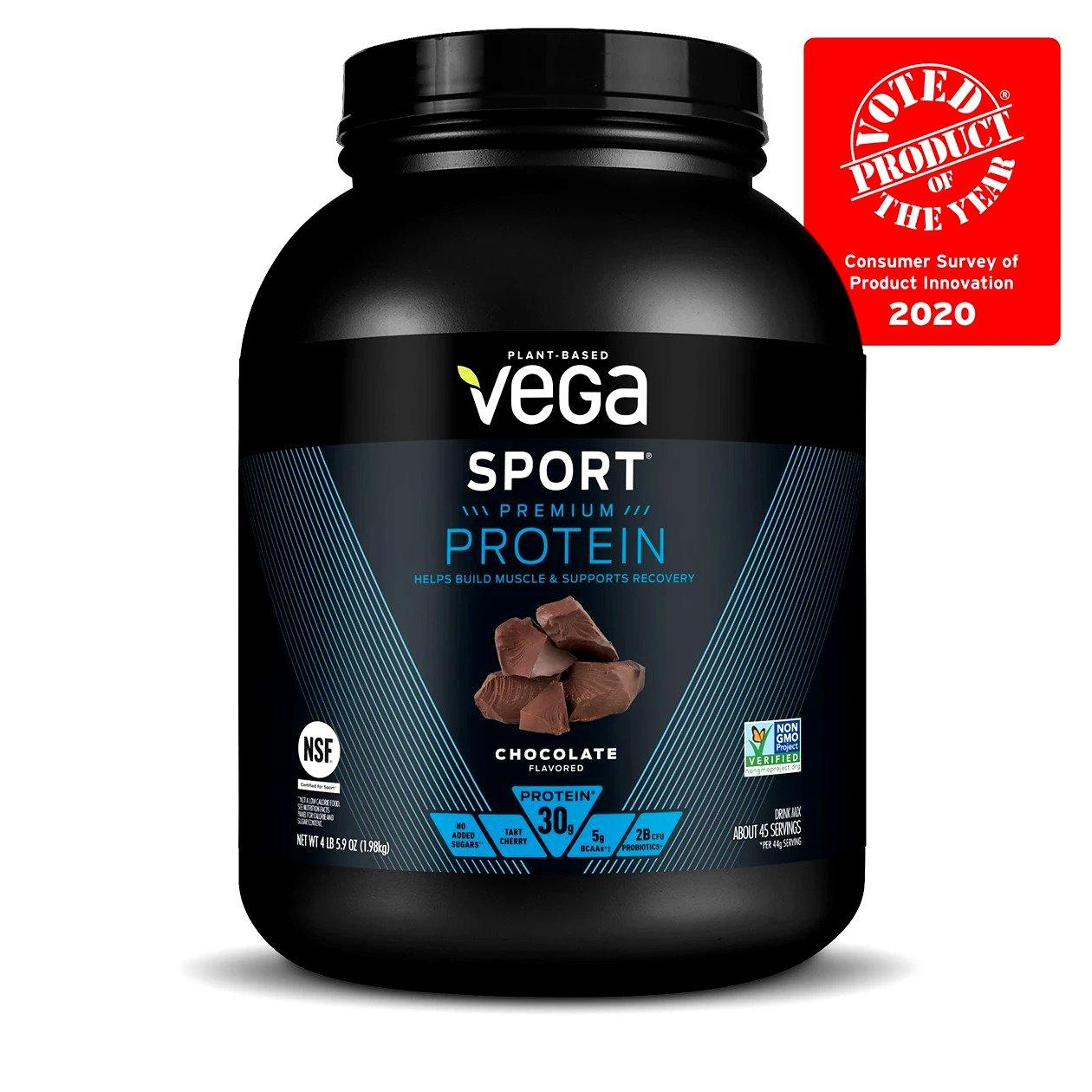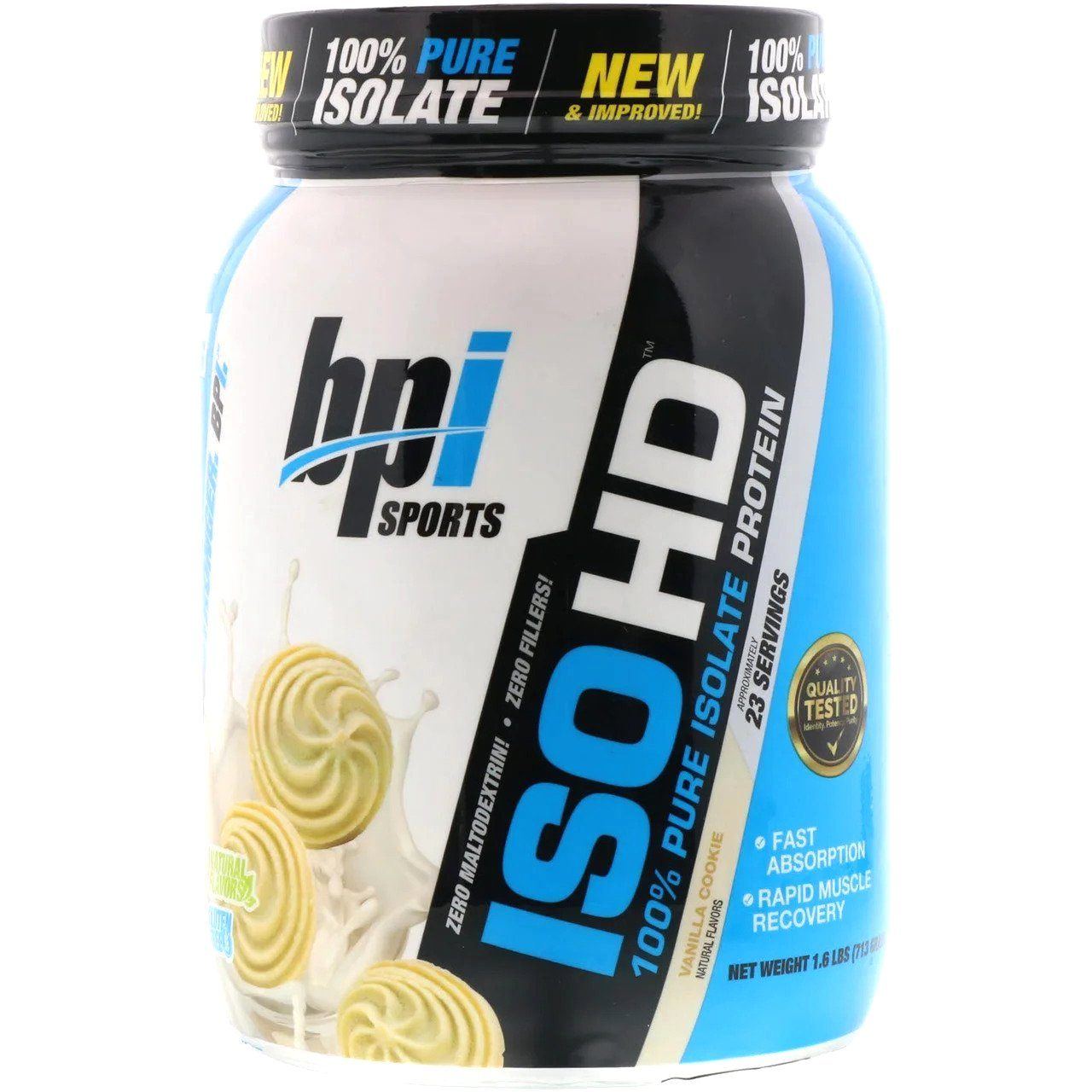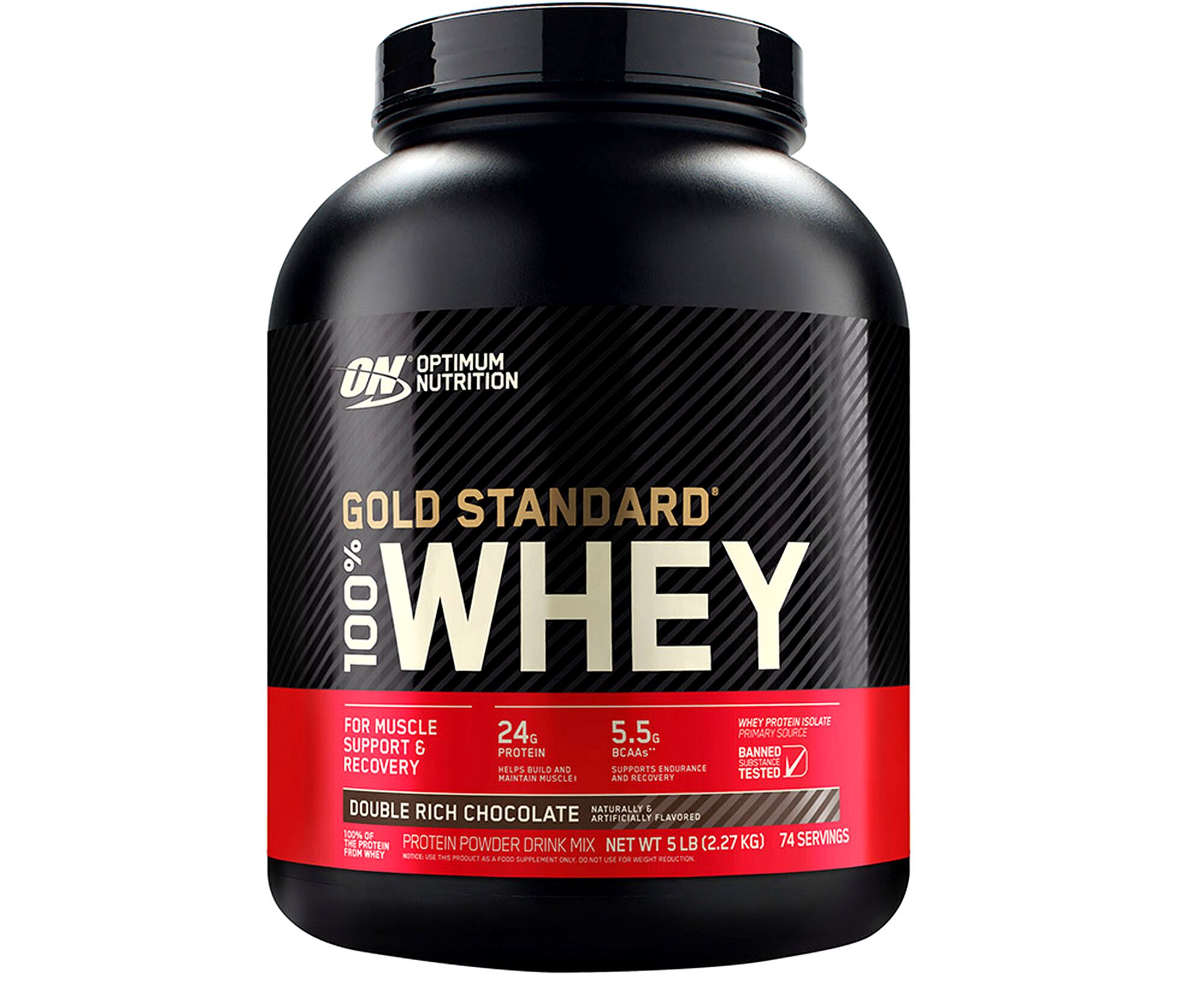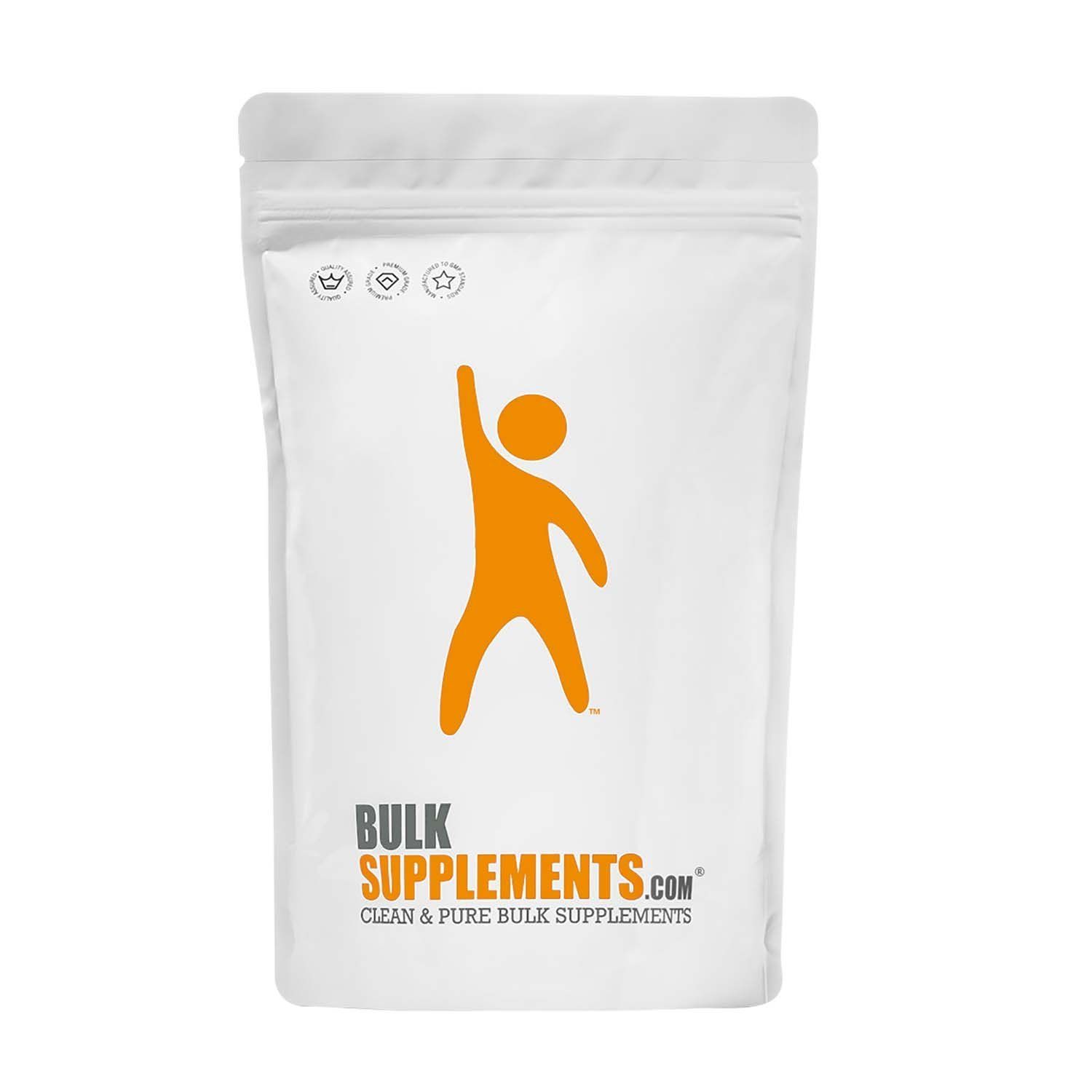It’s no secret that children can be picky eaters. Even when they’re not, it can be difficult to keep up with the demands of growing bodies. This is where protein supplements come in handy.
Any child can benefit from a protein supplement. Studies show that children who are highly active may not be consuming enough protein despite feeling full or eating a healthy diet.
It’s important to take different factors into consideration when choosing any protein powder for your children. For one, you need to make sure your child is comfortable taking it, and second, you need to make sure you’re giving them just enough protein.
Any growing child needs enough nutrition to reach their full potential. If you’re in charge of a particularly picky eater or a highly active child, you may be worried about their daily protein rich shake consumption. That’s why we’ve taken a look at seven of the best protein powders for kids of all ages to help you make the right decision and find the one that fits your family best.
Here are our top seven brands for kids picks guide:
- 1. Transparent Labs 100% Grass-Fed – #1 Best & Cleanest Protein
- 2. Ora Organic – Good For Sensitive Stomach
- 3. Performance Lab – Good If Your Kid Playing Sport
- 4. Vega Sport – Best Plant-Baise Protein Source
- 5. BPI Sports ISO HD
- 6. Optimum Nutrition Gold Standard
- 7. BulkSupplements Beef Bone Broth
Table of Contents
7 TOP Protein Powders for Kids (List for 2024)
Any growing child needs enough nutrition to reach their full potential. If you’re in charge of a particularly picky eater or a highly active child, you may be worried about their daily consumption. That’s why we’ve taken a look at seven of the top powders for kids of all ages to help you make the right decision and find the one that fits your family best.
1. Transparent Labs 100% Grass-Fed – #1 Best & Cleanest Protein
Transparent Labs 100% Grass-Fed is our top choice for kid-friendly products because it tastes delicious and comes in multiple kid-friendly flavors that will have kids of any age looking forward to their daily smoothies.
We particularly favor the cereal splash flavor because it tastes mildly sweet and creamy. What’s more, is that it’s designed for any age to consume. This means it would be a viable option for the whole family.
Here’s why you’ll love it:
100% Safe and Clean Ingredients – this product contains a whopping 28 g. of pure whey isolate per serving. It’s also sustainably sourced from only the finest dairy cows and is free from preservatives and artificial additives.
- Great taste with milk and water
- Mixes well
- Comes in different flavors
- Replete protein yield per serving (28 g. per serving)
- No artificial additives
- Low in fat
- A bit expensive
Summary: If you’re willing to pay top dollar for high grade protein that mixes well and tastes great on its own or mixed into other drinks, you’ll enjoy this supplementation that has one of the highest protein yields per serving in the industry. It comes in delicious and unique flavors and it’s ideal for every member of the family as well.
.
2. Ora Organic Vegan – Best for Sensitive Stomachs
This Ora is organically sourced and is 100% vegan-friendly protein powder. That means it’s made up of the cleanest ingredients and is designed to deliver pure plant protein as well as added nutrition. It contains a full amino acids profile, so you don’t have to worry about taking additional BCAAs alongside it as well.
Here’s why we recommend it:
Top for Sensitive Tummies – for any parent, it can be a nightmare for your child to develop any kind of physical distress. Stomach or digestive distress is no different. This product comes with digestive enzymes that help your child’s body without causing bloating or gassiness.
- Replete protein yield per serving (21 g. per serving)
- Complete with your daily BCAA requirements
- Organic ingredients
- Vegan-friendly
- Can be quite expensive
Summary: While it is a completely viable vegan and plant-based option, it can get quite pricey. However, you do get your money’s worth. Moreover, you also do not have to worry about your child complaining about an upset stomach because it’s easily digestible.
.
3. Performance Lab
Performance Lab Sport is ideal for any budding athlete. If your child enjoys sports or is highly active, this supplementation is ideal for them. It’s the only patented formula for sports use and is backed with scientific research by professionals in the field. It’s also made from organic brown rice protein, so it’s a great plant-based option as well.
Here’s why you’ll like it:
As Effective as Whey – if you’re looking for a great choice that is just as effective as whey protein but are worried about it being animal-based, this plant-based option comes highly recommended. It doesn’t contain caffeine and other unnecessary additives so it’s 100% clean and pure.
- Patented for athletic use
- Does not contain any synthetic ingredients
- Organic and sustainably sources
- Tastes great
- Fiber-based
- High calorie count
Summary: Perhaps the only negative thing about this product is that it contains 100 calories per serving. However, if your child is highly active, this can prove to be a good thing as they are more likely to be able to burn through those calories quickly. It comes in great tasting flavors and mixes well with other beverages.
.
4. Vega Sport
Vega Sport Protein is ideal if you’re looking for something that packs a lot of protein and allows you to spread the portions out a little longer. One thing I’ve found is that because each serving packs 30 g., with tasty chocolate, vanilla, and other variety of flavors, you do not really need to give your child the whole serving unless absolutely necessary. So you can actually double the servings you get per container.
Here’s why you’ll like it:
Sugar-Free Goodness – this supplementation contains absolutely no added sugars. That means you’re less likely to deal with sugar rush and energy crashes.
- Replete protein yield per scoop (30 g per scoop)
- c source
- Contains 5 g. of BCAAs
- Contains tart cherry to help with muscle recovery
- Quite expensive
Summary: This supplementation is ideal for anyone who wants something highly nutritious and well worth every cent. You’re also able to double the servings per container because of how much protein it packs. Unfortunately, it does get quite expensive.
.
5. BPI Sports ISO HD
We recommend BPI Sports ISO HD if you’re looking for something that will help your child gain weight and muscle at a rapid yet healthy pace. It’s easily absorbed by your child’s body so you don’t have to worry about it lingering or causing any discomfort.
Here’s why you’ll like it:
High Protein Yield – this product contains 25 g. per serving of quality pure and premium whey protein isolate.
- Replete protein yield per serving (25 g. per serving)
- Quality protein source
- Easily digested by the body
- Does not mix well
Summary: You may need to take your time with blending this supplementation. It does not mix well and typically doesn’t taste all too great on its own either. That said, it is a great protein source and has a fairly decent protein yield.
.
6. Optimum Nutrition Gold Standard
This brand is known as Optimum Nutrition’s Gold Standard because of one very simple reason: It’s highly effective. If you’re looking for something that will help your child stay active and perform better in sports, you’ve found it.
Here’s what you’ll love:
Increased Strength and Endurance – this kids and adults protein is ideal if you’re looking for a whey protein that contains a reasonable portion that helps your child perform physical activities better with more endurance.
- 5.5 grams of BCAAs
- Replete protein yield per serving size (over 20 grams per serving)
- Many flavor options
- Contains artificial flavorings
Summary: One of the only reasons why I do not recommend this product more is because some of its flavors contain artificial additives to obtain the taste. While this can be easily remedied by choosing unflavored, it’s still something you should be careful of.
.
7. BulkSupplements Beef Bone Broth Lactose-Free
It can be difficult to choose a supplement that tastes good with savory food. It’s even more difficult to find something that is lactose-free (you can find a few products here). Luckily, BulkSupplements offers an affordable and highly reliable solution to both problems.
Here’s what you’ll like:
Highly Versatile – this beef bone broth protein is high in nutritional value and is highly versatile. You can add it to savory food if you’re looking for something you can sneak into your child’s daily nutrition.
- Affordable
- Highly versatile
- Rich in nutrients, vitamins and minerals
- Does not blend well
Summary: This supplementation is an ideal option if you’re looking for something lactose-free and affordable. It’s versatile and can be mixed into your cooking so you do not have to force your kids to drink anything in addition to their meals.
.
About Truvani Protein Powder
I am not a fan of protein powders, however, this one seems to be a great mix of every necessary nutrient. Although I am not huge on using certain brands, this one is on the better side. Truvani Strawberry Power Shot: I always enjoy fruity flavored drinks, however, I have mixed opinions. Truvani, a maker of high-quality supplementation, is now available at select stores, including Walmart and Kroger. In just two months since launching its consumer-direct channel, Truvani has broken the mold of others and has expanded its line to include two new products – Truvani Honey and Truvani Cacao – which allow its customers to find the highest quality choice to meet their specific nutritional needs. The new products include four different flavors and an additional option of organic milled Truvani flakes.
Truvani Shakes in Chocolate and Vanilla are the first high-protein powders that contain real cacao. Truvani Chocolate, now with 12g, is a healthy, protein-packed option for people looking for a sweet treat. Truvani’s Vanilla and Honey flavors are both great options for those looking for an extra boost of energy. Truvani has now entered the superstore market with the addition of Walmart, the largest grocery retailer in the United States. The new Truvani products join an impressive lineup of quality options in the entire store. With an ever-growing demand for supplements, Walmart has quickly become the go-to source for healthy grocery options. Truvani Shakes in Honey and Cacao are available at Walmart stores nationwide for a suggested retail price of $5.49.
What To Look For in a Child-Friendly Protein Powder
As a parent or guardian, you’re in charge of making sure you’re giving your child the best and healthiest supplementation available. Take a look at our quick and easy to follow rules on what you should look for in a protein powder for children:
- Little to no sugar. Make sure your product contains as little sugar as possible. As a general rule, it should not go over 6 grams per serving. Moreover, make sure no syrups or artificial sweeteners are used to sweeten.
- No added sugars. If you’re adamant about choosing a product that is slightly sweeter for your babe, make sure you choose something that contains monk fruit. You should stay away from artificial sweeteners or any added sweeteners at all. Yes, this includes stevia.
- Stay away from soy isolate. Soy isolate is not an ideal ingredient to have in your supplement that a variety of issues including GMOs, heavy metal contamination, can impact hormones. The process of isolating the soy strips it of its nutrients and leaves behind traces of heavy metals. This usually leads to the formation of nitrites, causing carcinogens to form in your child’s body.
- Organic and non-GMO is the way to go. Choose something as organic as possible. This gives your babe a cleaner source of protein and added nutrients. Plus, this guarantees that your child isn’t putting anything harmful into their little bodies.
- Minimal caloric count. Make sure your supplementation contains little calories. As a general rule, you should keep it to under 160 calories per serving for under 12 years old. As for older children, keep it to under 200 calories per serving.
- Avoid heavy metals. Some powders such as soy isolate may contain heavy metals unless the product is clean, such as shown in this guide here. This is something you do not want in your supplement—not to mention your children’s. This guarantees their overall health and ensures that the protein powder they’re consuming is safe for your family.
Frequently Asked Questions
We’ve compiled some of your most asked questions. We feel these questions will help you make an informed choice on choosing the best protein powder for your children.
How Much Protein Does a Toddler Need?
The amount of protein a child needs varies depending on their age. But generally, for children around 4 to 13 years old, the general formula is 0.45 grams per pound of body weight.
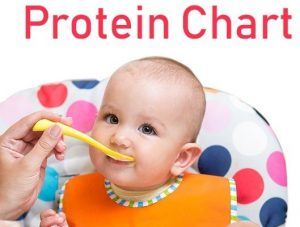
- 2 to 3 years old: 13 grams
- 4 to 8 years old: 19 grams
- 9 to 13 years old: 34 grams
- 14 to 18-year-old boys: 52 grams
- 14 to 18-year-old girls: 46 grams
This chart should help you make an informed decision on how much powder you need to give your child. One thing you need to remember, though, is that there are plenty of protein sources.
It isn’t just exclusively meat. Your children can get healthy protein from other foods like nuts, greens, milk, eggs, and grains.
Make sure you’re adjusting their supplement intake according to the volume of casein protein powder they’re eating throughout the day. You do not want them to overdose on protein.
Is Pediasure Healthy?
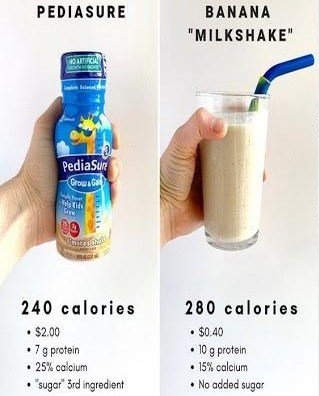
Unfortunately, it’s not as healthy as it suggests.
It contains plenty of sugar and processed ingredients that you do not want to give your babe.
If you’re considering a meal replacement shake for your child, you can always blend your smoothie or shake and add in a more natural protein powder so you can control the ingredients in your child’s on-the-go meal.
Overall, Pediasure does not have enough nutritional value to justify the processed ingredients and sugar content.
Can I Give Protein Powder to My Child?
They can help fill in what protein your child is missing throughout the day.
However, it’s essential to make sure that you’re giving your kid just the right amount daily.
Research suggests that too much protein can be harmful to your health. Imagine what it does to your child’s health.
If you’re concerned about your kid not taking enough protein throughout the day, make sure you consult a doctor before giving them extra doses of protein.
Is it safe for a 15 Year Old to Drink Protein Shakes?
Yes. It is completely safe for a 15-year-old to drink shakes. Especially if your teenager is more physically active and cannot get enough protein from eating whole food.
However, if your teenager is eating a balanced diet and can get enough protein from eating solid food, there is no need to drink protein shakes. This can even cause adverse health issues if your teenager is taking more protein than their body can process.
Is Hemp Protein Good for Children?
It (hemp products reviewed here) is safe for toddlers, an infant, a two-year baby, or children of any age. This plant protein is pure, which means it contains a complete amino acid profile. Moreover, it’s easily digestible and has a good vitamin content, which is added nutrition to your child’s diet.
It doesn’t have as high of a protein yield as whey protein, which is for the best since you want your babe to be eating more solid food for their protein intake. It’s also arguably one of the best gluten-free options.
Where To Buy Protein Powder for Kids?
Arguably, there are many online retailers you could scout to get your child’s daily protein fix. The best approach would be to purchase directly from the brand’s website or a reputable online retailer. This guarantees you’re getting a genuine product without the risk of contamination. Below is a list of reputable retailers:
- Walmart
- GNC
- Amazon
- iHerb
Can Kids Have Protein Powder?
Kids getting protein powder when they’ve already been fed the appropriate amount of calories can lead to eating a surplus of nutrients, a study found. Wendy Moore of Cleveland Clinic Children’s Hospital in Ohio and colleagues said that youngsters who are getting enough calories and protein tend to be in the 99th to 99.9th percentile for growth and weight. “It’s our job as parents to make sure that they get enough protein,” Moore told Reuters Health.
But the American Academy of Pediatrics recommends less than 3.3 grams a day for toddlers, which is the average amount a toddler should eat during the day. “It really is quite important that we make sure kids get enough protein in their diet, but protein is not one of those nutrients that we should get from food. It’s not really the food, it’s the way we digest it,” Moore said. Past research has found that kids are given protein supplements at least twice as often as is recommended.
What Age Can a Child Have Protein Shakes?
If you think every tween is obsessed with protein shakes, you’ve got it all wrong. Not only do many of today’s teens keep up with their protein intake, they’re also eating more meat than ever before. Those with common dietary restrictions, however, face a dilemma when it comes to protein powder. Should you serve them soy protein powder, or would organic, grass-fed whey be better for their (and your) health?
We talked to two doctors to get the low-down. They suggest not letting kids below the age of 8 or 9 have their own shakes, and in fact, they don’t advise it for older kids. At that age, a kid’s nutrient needs are still being hammered out, and it’s likely they’d be overdoing it with so much protein. Before the powders and shakes take off, the average kid’s protein needs are about 1 gram of protein per pound of body weight. So if a kid is already more than 5 pounds overweight, the amount of protein they should get each day will be higher.
What Age Can You Drink Protein Powder?
Protein powders are a common way to get an extra protein hit, especially if you’re on a weight loss journey or just trying to get your daily dose. But, as with anything in life, it depends on how old you are. According to Lark & Ro (the product we’ve used and reviewed), protein powders may be marketed to anyone over the age of 17, but are primarily sold for weight loss purposes or as a supplement to a diet low in protein.
For people 18 and younger, there is not enough scientific data to prove a benefit for most people. By now you’ve probably seen the countless ads that promise to add years to your life and increase your strength, energy, and ability to work out. And, after just reading that, you might wonder: at what age can I legally consume protein powder? Sadly, the answer is: that for the vast majority of people, there is no safe age for the consumption of protein powder. The consumption of protein powder can lead to a range of serious, life-threatening problems if consumed.
What is the Minimum Age for Protein Powder?
The minimum age for consuming protein powder varies, but generally, it is recommended for individuals aged 18 and above. This guideline aligns with the age when most people have reached physical maturity. Before this age, it’s advisable to prioritize nutrient intake from whole foods to support natural growth and development. Additionally, young individuals should consult with healthcare professionals or nutritionists before incorporating protein supplements to ensure appropriateness based on individual health needs and dietary requirements.
Are Protein Shakes Allowed for Kids?
Protein shakes, protein bars, and protein shakes are all delicious ways to take in protein. But is it possible to give your kid a shot of whey or cashew or whatever and expect that they’re getting all the essential amino acids they need? So, the discussion about whether or not kids can have protein shakes comes up whenever I’m chatting with someone who works with kids with health issues.
For one, most kids are very allergic to soy (as well as nuts, corn, shellfish, and other things). And if soy or cashew or whey is in the shake, kids could get serious reactions. I always recommend checking the label to make sure the powder isn’t sourced from a manufacturing facility that also uses these ingredients (which is pretty standard in most places). Also, it would be very easy for a kid to make a mistake when mixing up their protein shake or smoothie.
Do Kids Need Whey Protein?
Kids do not necessarily need whey protein supplements if they have a well-balanced diet that meets their nutritional requirements. Whole foods should be the primary source of protein for children, as they provide not only protein but also essential vitamins, minerals, and other nutrients crucial for growth and development.
Whey protein is derived from milk and is a complete protein source, containing all essential amino acids necessary for the body. While it can be beneficial for children who have increased protein needs due to intense physical activity or specific health conditions, such as malnutrition or certain medical treatments, it is generally not recommended as a supplement for healthy children with a balanced diet.
Instead, parents should focus on providing a variety of protein-rich foods such as lean meats, poultry, fish, eggs, dairy products, legumes, nuts, and seeds. These foods not only supply protein but also offer a range of other nutrients vital for overall health.
Moreover, excessive intake of protein supplements, including whey protein, can potentially lead to health issues such as digestive discomfort, kidney strain, and displacement of other essential nutrients in the diet.
It’s important for parents to consult with a healthcare professional or a registered dietitian before considering any protein supplements for their children. They can assess the child’s nutritional needs and provide guidance on maintaining a balanced diet that supports optimal growth and development without the need for supplementation.
In summary, while whey protein can be beneficial in certain circumstances, it is generally not necessary for kids with a well-rounded diet and can even pose risks if consumed excessively. Focus on providing a variety of nutritious whole foods to ensure children meet their protein needs and support their overall health and development.
Protein for Kids: Best Food Sources & What’s Too Much?
Protein for kids is crucial for their growth and development, and obtaining it from a variety of whole food sources is optimal. Nutrient-rich options include lean meats, poultry, fish, eggs, dairy products, legumes, and plant-based sources like tofu and quinoa. These foods provide essential amino acids, vitamins, and minerals necessary for overall health.
It’s vital to strike a balance, as excessive protein intake in children can have adverse effects. The Recommended Dietary Allowance (RDA) for protein varies with age, but a general guideline is 13 grams per day for toddlers and 19-34 grams for children aged 4-13. Consuming too much protein may lead to excess calorie intake and potentially displace other essential nutrients.
Parents should focus on providing a well-rounded diet, considering individual needs and consulting with healthcare professionals or dietitians to ensure children receive adequate, but not excessive, protein for their age and developmental stage.
Final Words
There are many reasons why you should look into giving your kid an extra dose of protein through protein powders. There’s no shame in needing a bit of help in raising your child’s protein consumption. Take a quick look at the most common reasons why your kid may need an added protein source.
- Suppose you’re concerned about your child’s height growth. Stunted growth could be caused by a lack of protein.
- Suppose your kid is not gaining weight properly. Replete protein intake can help with healthy weight loss or weight gain.
- Your child has dietary restrictions. It will help your kid increase their protein intake without worrying about their allergies or aversion to certain food.
All things considered, there are several benefits to giving your child protein. But you should make sure that they absolutely need it and you should always consult a pediatrician before making any major decisions.
.
Overall, we’re confident that you’ll find the right protein powder on this list for any of your children or your family’s needs. Take a look at some of our top picks:
Transparent Labs is ideal for active kids who are looking for a quality protein source. Its high protein yield is ideal for any kid who isn’t getting a lot of protein from whole foods.
Ora Organic is ideal for children who need a plant-based protein source. It also contains digestive enzymes that help with digestion. This is ideal for children who often suffer from gassiness, bloating, and other digestive issues from taking protein powders.
Ultimately, there are many choices in the market. We’re confident you can find the right one by taking a look at the list above. At the very least, we’re confident we’ve helped you make the right decision for your family’s health.
